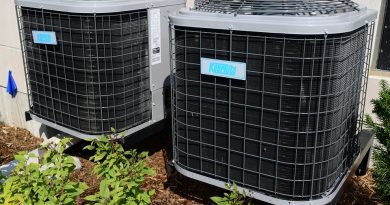Dog-Friendly Garden Tips
When you have a dog, ensuring that your garden is a safe place for your pooch is very important. If you love your garden, you’ll probably want to protect it from your pup too! Here are some quick tips to help you do just that.
Secure Fencing is Your First Priority
If you want your dog to be free to roam around your yard without worry, then the very first thing you need to do is install strong fencing panels. If your yard is already fenced in, then just do a sweep of the perimeter, checking that it’s all secure and there are no gaps that your dog can escape through. Ideally, your panels should go a ways under the ground, to foil any doggy digging antics.
Stimulation is the Key to Fun
If you can, creating lots of different sections in your garden, including say a digging area, an area with lots of interesting and robust dog-friendly plants which smell good and move about in interesting ways (there are many plants which are toxic to dogs) and of course, various walkways, so you and your dog can enjoy the space comfortably, is a great way of keeping them happy. Consider getting a dog tennis ball launcher that can exercise and stimulate at the same time.
Plant Robust Species
As I mentioned above, robust species are the order of the day in a dog-friendly garden. That’s why you should plant established perennials, which are ideally large in size, along with hardy species like lavender and geraniums, which will not be so easily ‘broken’ or dug up by an inquisitive canine.
Raised Beds are Ideal
Your dog can ruin your beautiful green lawns, not only by digging and generally running around but also because his pee can create yellow patches. That’s why it’s a great idea to install raised beds for your dog to dig, play and pee. Obviously, you’ll need to train him to use the garden in this way, but it’ll be worth it when he can have a great time, and you can still enjoy the garden for yourself.
Keep Slugs and Snails at Bay
If you let slugs and snails get into your garden and your dog eats one, it could make them very sick by giving them a condition known as Lungworm. The best way to control slug and snail problems is by using pellets that will kill them, but which are non-toxic to your dog.
Just so you know, common signs of Lungworm include breathing problems, coughing, fatigue and excessive bleeding. If you notice any of these signs in your dog, get him to a vet immediately.
Keep Your Shed Locked
If you have a shed, chances are there will be a few chemicals and tools that could prove dangerous to your dog, which is why, if you haven’t already, you need to ensure that it is secured and locked at all times when your dog is outdoors unsupervised.
Organic Only
When gardening, you should aim to use only organic, non-toxic chemicals that won’t harm your dog.
Now, get out there and have some fun with your pooch. There are sticks that need to be thrown!





